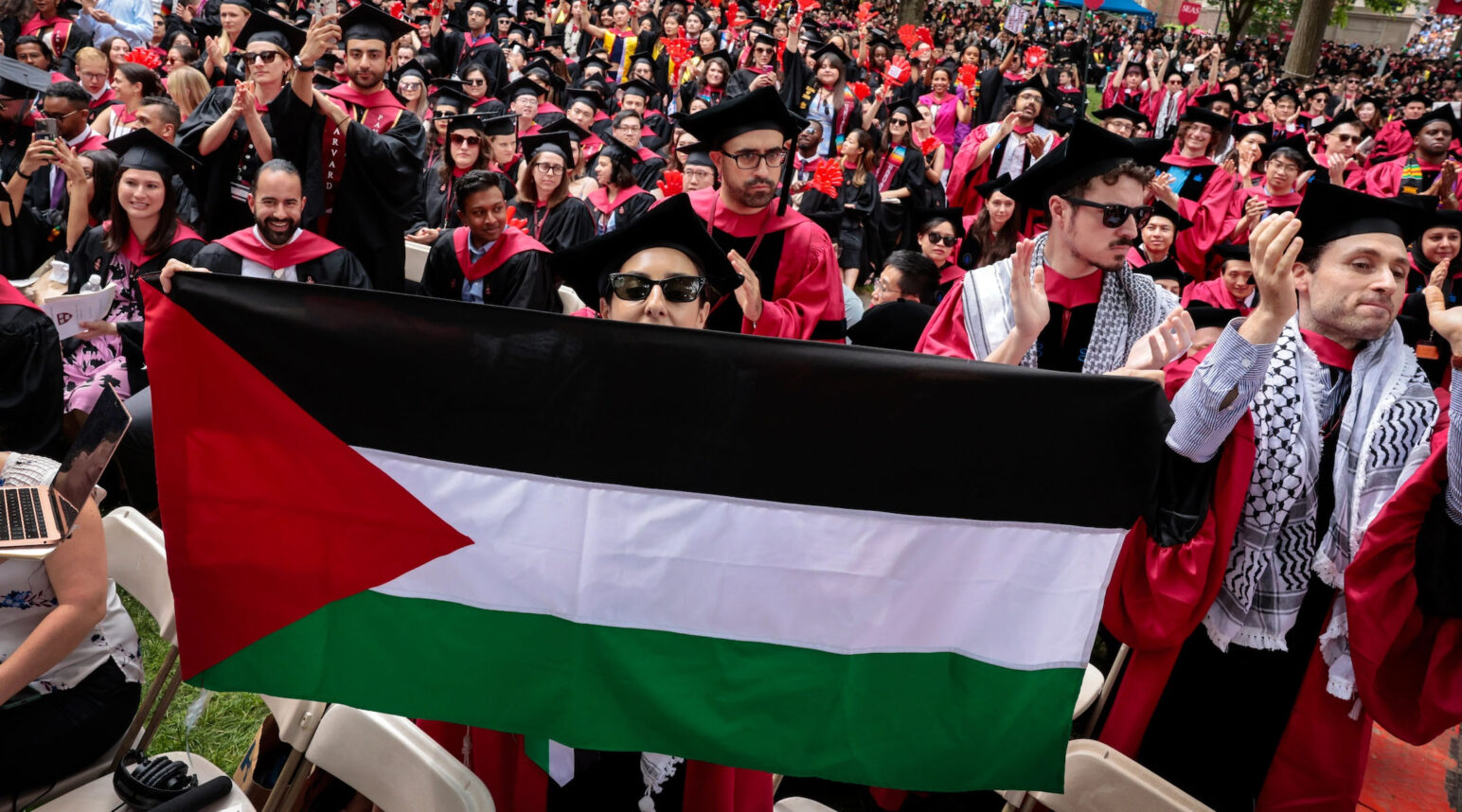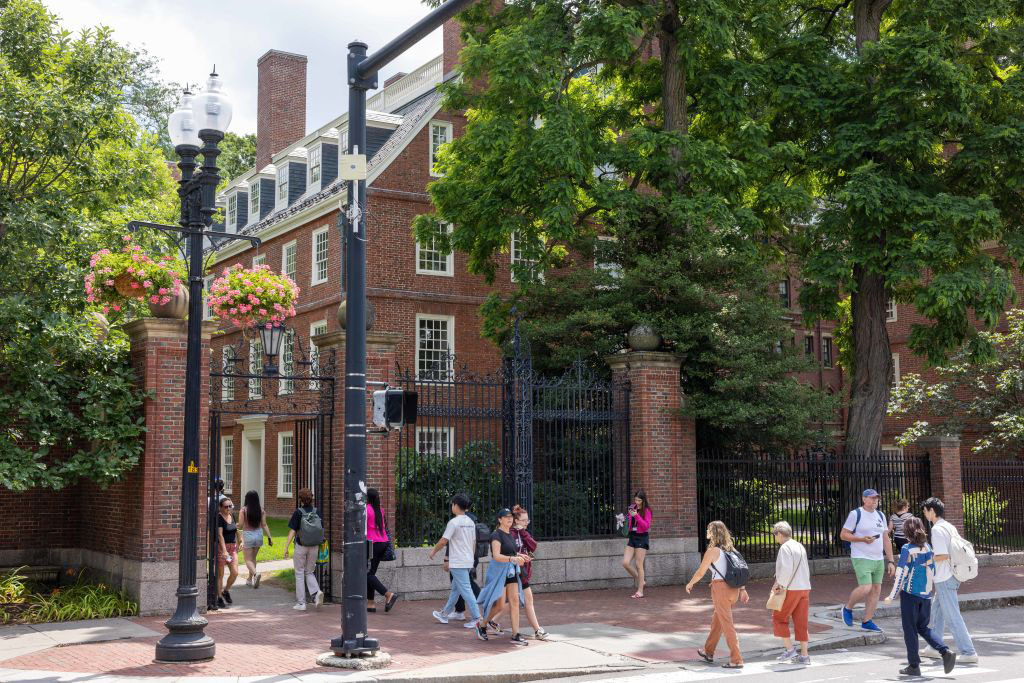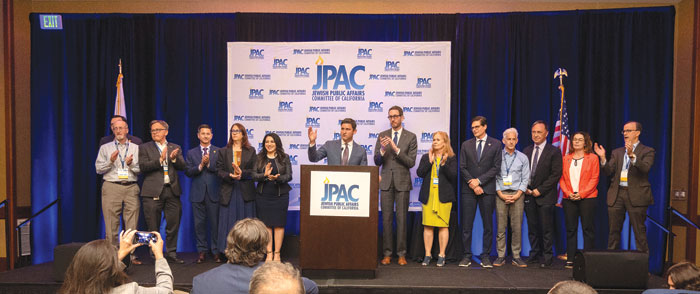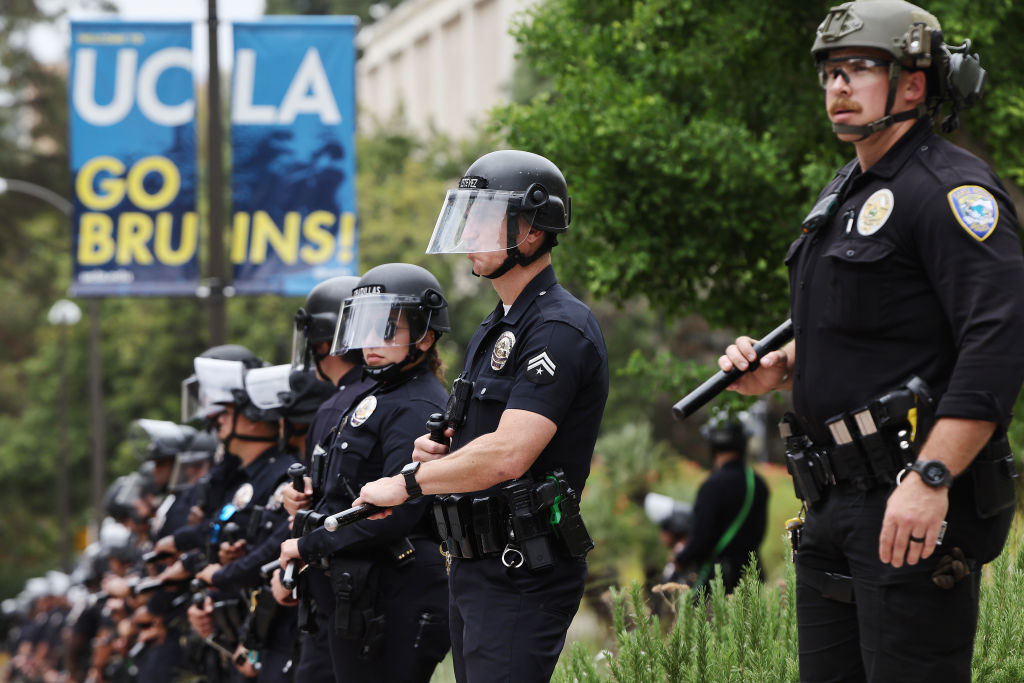 Sean De Burca / Getty Images
Sean De Burca / Getty Images A new report released by the AMCHA Initiative on December 14 found that American universities’ policies are insufficient in protecting Jewish students from anti-Zionist harassment on campus.
The report, authored by AMHCA Co-Founders Tammi Rossman-Benjamin and Dr. Leila Beckwith, a UCLA Professor Emeritus, states that they researched the harassment codes and codes of conduct at 100 different universities and found that while verbal abuse was included in every harassment code, a quarter of universities did not include verbal abuse in their conduct of banned behavior. Rossman-Benjamin and Beckwith also found that fewer than 40% of universities define harassing behavior “as conduct that limited, interfered with, or impaired a student’s ability to participate in campus life” and more than a third provided harsher punishments for those who harassed students in “protected” identity groups more than those who are in “unprotected” identity groups. Additionally, more than 75% of universities have a special office dedicated to investigating complaints of harassment against “protected” identity groups while complaints of harassment against “unprotected” identity groups were “handled by the same office that handles all student conduct complaints.”
“Jewish students who fall victim to harassment motivated by their support for Israel are often not covered by these policies, since many university administrators do not consider support for Israel an expression of a Jewish student’s religious beliefs or ethnicity,” Rossman-Benjamin and Beckwith wrote in the report. “And despite the fact that in recent years considerable efforts have been made by Jewish student groups and communal organizations to get schools to adopt the International Holocaust Remembrance Alliance (IHRA) definition of antisemitism, which includes examples identifying anti-Zionist rhetoric as antisemitic, most administrators are hesitant to do so, fearing pushback from students and faculty claiming the definition impedes their freedom of speech.”
But Rossman-Benjamin and Beckwith noted that even if Zionist Jewish students were to become a protected identity group, university harassment policies would still exclude Zionist students who aren’t Jewish. “This distinction highlights a troubling inequality: under school harassment policies, the exact same harmful behavior will be either addressed or ignored by administrators, based solely on the identity of the student,” they wrote. “Even more troubling is the fact that the severe, pervasive or persistent behavior in question—whose effect is to limit, interfere with or deny a student the ability to participate in or receive benefits, services, or opportunities from the school’s educational programs and/or activities—is clearly behavior that no student should have to contend with, irrespective of his or her identity.” This, Rossman-Benjamin and Beckwith contend, is why Jewish students who support Israel allege that university administrators inadequately handle complaints of verbal antisemitism.
To solve the problem, Rossman-Benjamin and Beckwith suggest that schools adopt new harassment policies that provide equal treatment for “protected” and “unprotected” identity groups and for lawmakers to bring forth legislation “that establishes a clear legal process and robust government enforcement mechanisms for ensuring that all students in state and federally funded schools are equally and adequately protected from harassing behavior.”
“Whether antisemitism emanates from the right, in the form of classic antisemitism, or from the left, in the form of anti-Zionism, the rhetoric used to portray Jews is becoming increasingly similar: Jews possess undue power and privilege, which they use to control and oppress others. And while the antisemitism may be directed to different audiences, its intended effect is the same: to portray Jews as a threat to the common good, whose malevolent influence must be challenged and neutralized,” Rossman-Benjamin said in a statement. “Yet, as the problem is rapidly becoming more acute, with a new massive assault on Jewish identity on campuses nationwide, a thorough examination of university policies reveals Jewish students are left neglected, vulnerable, exposed and without recourse against antisemitic harassment.”






















 More news and opinions than at a Shabbat dinner, right in your inbox.
More news and opinions than at a Shabbat dinner, right in your inbox.